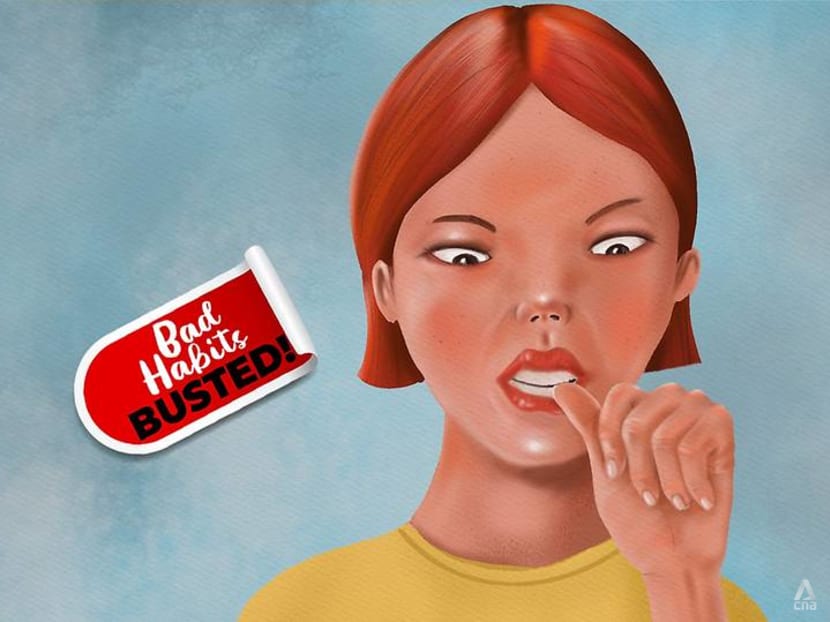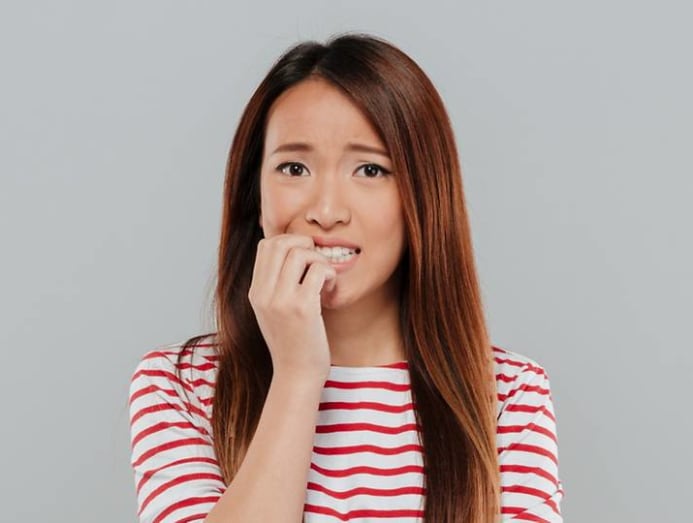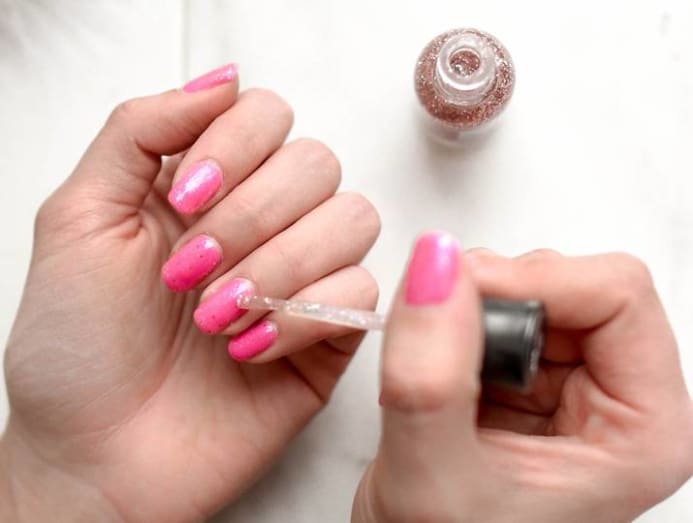Why you should stop that dirty habit of biting your nails when stressed or bored
Most people outgrow it in adulthood but what if you don't? Viral infections and being susceptible to bacteria are things to watch out for. An expert tells CNA Lifestyle how to break the cycle.

(Art: Jasper Loh)
Do you have the tendency to bite your nails whenever you feel bored or stressed? You’re not alone.
According to DTAP Clinic’s resident doctor Julian Hong, it’s quite prevalent in Singapore – about one in five young adults between the ages of 17 and 35, and it could potentially be higher as people might either be unware it’s an issue or are shy in seeking help.
“The numbers over the age of 40 are not as well-known and documented,” he added, while also pointing out that the habit tends to affect more females than males.
So why do people bite their nails? Some say it’s a mechanism – a way for you to entertain or soothe yourself, much like a baby does with a pacifier.
But while Dr Hong says there’s “no known cause to why people bite their nails”, there’s a possibility it could be in your genes.
“From the genetics point of view, some studies have shown that people who bite their nails, four in 10 have a family member with this habit as well. Twin studies have also showed a strong support for this genetic element,” he said.
READ: How frequent nose picking can enlarge nostrils and introduce more bacteria
And while many of us think it’s harmless, the habit of chronic nail-biting (also known as onychophagia) may be linked to an obsessive compulsive disorder or anxiety disorder, “although this is not always the case”, said Dr Hong.
WHAT’S THE DAMAGE?
Other than unsightly nails, there are health issues that can arise from the habit. For instance, the biting can create deformity of the nail edge, the nail bed and the nail plate, said Dr Hong. “Infections can also take root in the nail.”
As if that’s not deterring enough, “damage to the nail and the surrounding skin can also make one more susceptible to viral infections such as herpes and even viral warts”, he said.

Furthermore, nail-biting transfers bacteria from the fingers to your mouth, and in some cases, “strong antibiotic resistant bacteria can be transferred, resulting in infection of the gums and even teeth”, said Dr Hong.
HOW CAN YOU STOP THE HABIT?
Growing up, nail biters were probably subjected to scolding, physical punishment and getting chilli sauce smeared on their fingertips to deter them. But a better approach would be to help the nail biter realise the warning signs that lead to the action before the nail biting occurs, and how to intervene with a distraction or alternative response, said Dr Hong.
READ: Love wearing that mask on your arm or under your chin? You’re spreading germs
For instance, as you are about to bite your nails, stop and pause for a few moments before putting your fingers to your teeth. “The pause would be the warning sign, and the intervention could be meditation and deep breathing,” he said.
There are also other strategies such as applying safe but bitter-tasting nail polish, or using colourful wristbands to attract your attention when you raise your hand to your mouth.

There are some mood medications that have been used to reduce nail-biting but with “limited success”, said Dr Hong. For instance, n-acetyl-cysteine, a precursor to amino acid cysteine, can regulate glutamine and play a part in the reward reinforcement system.
“This medication is available over the counter and is relatively safe,” he said. However, double-blinded control studies did not show it to be more successful than a placebo, he added. Consult a doctor first before self-medicating.
Relapses can happen when you’re trying to break the cycle, and sometimes, they can recur even after more than three months, said Dr Hong. “Getting out of it again would require another intervention. This can be one of the above pharmacological, non-pharmacological interventions, a combination of both, or other strategies. There are no proven strategies and it differs from person to person.”
You should seek medical help if you are unable to cope with the nail-biting, and your daily life and quality of life are affected, advised Dr Hong. See a doctor, too, if you keep failing to break the cycle, or if you need other strategies, he said.





